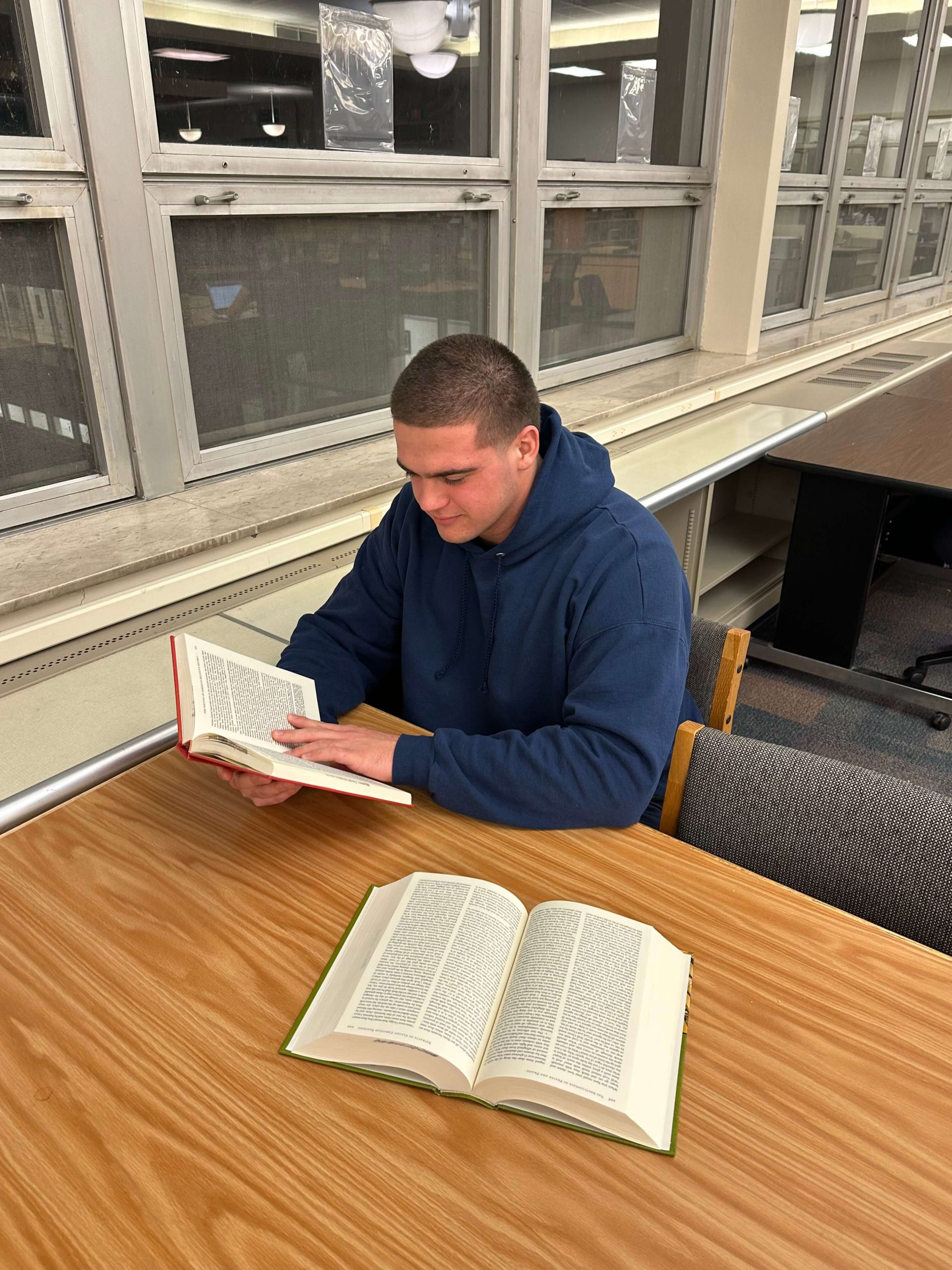
There are many aspects of adulthood: raising a family, paying bills, working a job, and the list goes on. As a student, there are requisite responsibilities of being on our own that often come before the traditional elements of adulthood. The list ranges from going to class on time, filling out the FASFA, career preparation, homework, and not of course the task that demands the most focus from a student… Studying!
Studying is no easy thing, but in order for students to pass their classes, they have to put in the time to make sure the end result is a resounding “A.”
How many hours do students put into their studies? Kaylyn Gilroy,a senior business management major states, “I study probably three to four hours depending on the week.”
Seth Elliot is a sophomore, and his major is also business management with a minor in marketing. When asked how often he studies this was his answer, “I study six days a week for about two and a half hours a day.” On top of that, Seth also wrestles for CUW, and he still finds the time and energy to apply himself.
The hours that students put into study is not done thoughtlessly. The mind of a college student is still developing (that is why college is some of the most important years of a young adult’s life!), and by talking with many students, it can be inferred that the mind of a young adult functions best in comfortable situations. That being said, the location and method of study is vital to a student’s success.
Seth prefers to study in the library in the common area where students are allowed to talk, while Kaylyn prefers to study in the quietest parts of the business building. Some students prefer ambient sounds in the background during times of focus while others need utter silence. The best location for studying depends on how the student’s mind functions. It is best to try out different locations for studying to find the most optimal way to a successful academic career.
Method of study is also important. A few specific methods include spaced repetition, spaced repetition, and interleaving which are scientifically proven to be the most effective study strategies.
Kaylyn’s way of studying is more geared towards what helps her the most. When asked her personal favorite way to study she said, “I hand write everything on note cards. I feel like when I study, I pick up new things I did not catch in lectures. I also tend to do my own research after (lectures).”
Seth “gets assignments and studying done as quickly as possible.” He also encourages taking breaks every hour to “refresh the brain.”
Sometimes studying seems mundane and pointless, but it pays off in the long run. Practicing being a studious student also comes with life benefits. In Seth’s words, “You gain self-discipline (from studying), and you gain the ability to get tasks done.”
Discipline and productivity are two very important qualities that one must obtain in in order to have a successful life. And these do not appear overnight. It takes lots of ambition and grit to be a good college student and eventually a well-rounded adult.
For more information on how to become an even more efficient student, click here to have access to the academic resource center.
— Peyton Smith is a writer for The Beacon. Peyton is a senior and will graduate in the spring of 2024 with a bachelor’s degree in Mass Communications with a minor in Law and Politics.
